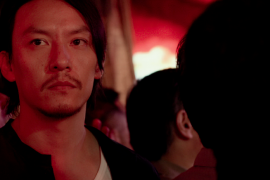Reality? It is the toothbrush waiting at home for you in its glass, a bus ticket, a paycheck and the grave,” says Orson Welles in one of the final sequences of F for Fake. The cinematic enfant terrible has never cared much for it. Reality, that is.
The twofold relationship with fabrications this pretend journalist, magician and consummate raconteur developed within the film medium, an artifice in itself, had been marked by censorship and fabrications of a more malicious kind used by the Hollywood establishment which allowed him to make Citizen Kane at the age of twenty three (it is the only film of which Welles had full creative control). F for Fake merges these aspects in a riveting, mischievous and, deliberately confusing speculation on originality, fakery, art and authorship. In his final directorial project Welles tells the story of the notorious art forger Elmyr de Hory and weaves it together with those of hoax-biographer Philip Irving, American magnate Howard Hughes and ultimately, his own.

Halfway into the film, French director François Reichenbach, whose documentary footage on de Hory and his biographer Philip Irving was used by Welles, tells a story that coincidentally sums up the deceptive nature of F for Fake. De Hory had, supposedly, sold Reichenbach a few fake Modigliani’s, which the latter then sold for double the price. Unaware of that, Hory offered to reimburse the director with a check that turned out to be false. “A false check for a false painting,” adds Welles amusedly. Deliberately deceiving and drawing our attention to one aspect of the narrative while planting in our minds, like a cuckoo’s egg, another, perhaps more profound one, Welles builds his hall of mirrors in which concepts of fakery and originality bounce off one another as reflections.
“It’s pretty. But is it rare? Lots of oysters, only a few pearls. Rarity. The chief cause and encouragement of fakery and phoniness, in everything, even what we’re given to eat,” comments Welles on our innate infatuation with exclusivity. But would the endlessly engaging conundrum exist without the presence of the so-called authorities on taste? Where would the debate stand, if there were no claims of infallible judgment on art and authorship?

F for Fake is not a documentary. This “new kind of film” escapes definitions by mixing fiction, duplicitous meanings, self-referentiality, historical background and elaborate visual trickery. Francois Truffaut believed Welles made the film as a “reposte” to the controversy created by film critic Pauline Kael, whose claims that Welles had not written a single line of Citizen Cane have later been proven untrue (the entirety of the script was supposedly written by his co-writer Mankiewicz). Welles gives a somewhat reconciliatory final note on his turbulent career as a film director – an epitaph celebrating art in its anonymity. Nevertheless, Welles’ off-screen and on-screen persona permeates all his work. In F for Fake he exposes himself as a charlatan, a faker, but we can’t avoid feeling that the true Orson Welles is hiding and probably does so in a typically mischievous Wellesian way, in plain sight.




